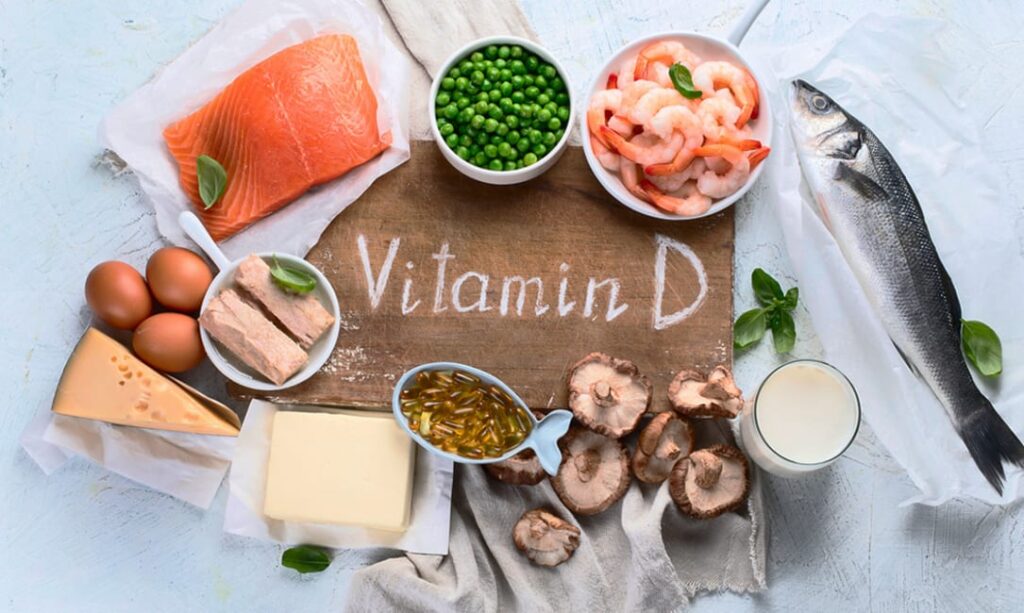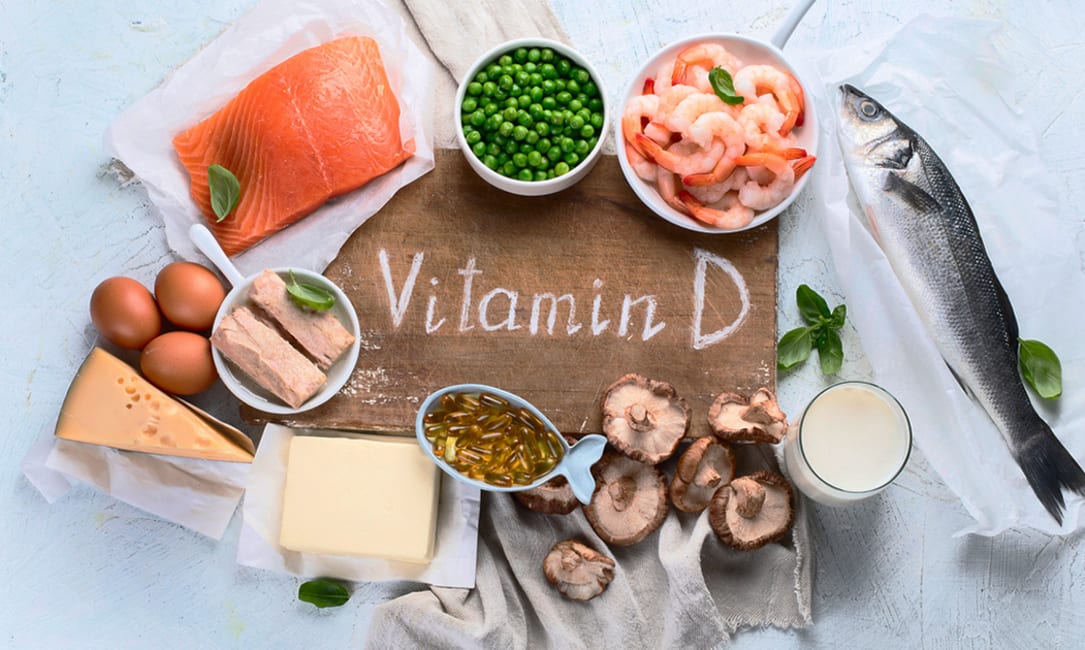Low Vitamin D levels have been linked to both obesity and depression with over 40% of the population chronically deficient in this vital “vitamin.”
We have previously written about the benefits of Vitamin D to your health and immune system.
But with recent lockdowns due to the pandemic, could further deficiencies through a lack of exposure to sunlight give rise to more issues down the line?
What is Vitamin D

Vitamin D is perhaps most appropriately classified as a steroid hormone rather than a vitamin. It is derived either through the action of ultraviolet light on the skin, which causes a particular form of cholesterol to convert into a form of vitamin D, or through dietary sources, including supplementation. Some of the best whole-food sources include fish (cod liver oil, salmon, mackerel, tuna and sardines) and milk.
Although the prevalence of vitamin D deficiency, which generally used to be associated with rickets (a disease that causes softening of the bones), was reduced in the United States by programmes including milk fortification, physicians have noted an increase in deficiency in recent decades, including a return of rickets in children. In China, studies have led to estimates that around 40% of the population suffer from vitamin D deficiency in winter, and a similar percentage is suggested for the global population. [R]
And while vitamin D can be consumed through dietary sources, most experts agree that it is difficult to reach the recommended daily amounts through diet alone. As a result, exposure to sunlight or supplementation is necessary to consume enough.
With regard to sunlight exposure, the time of year, time of day, geographic latitude, cloud cover, pollution, skin melanin content (i.e. skin darkness), and sunscreen use all affect UV radiation exposure and vitamin D synthesis. For many, as a result, it will be necessary to supplement with vitamin D to ensure recommended daily amounts are met.
The issue of vitamin D deficiency has taken on an added significance during the current Coronavirus pandemic, in light of a recent Spanish study on the effects of oral administration of fortified vitamin D to Coronavirus patients.
Scientists at Barcelona’s Hospital del Mar discovered that doses of vitamin D ‘reduced mortality of more than 60 percent’, and that patients were 80% less likely to require ICU treatment if they were treated with the vitamin.
Vitamin D Deficiency, Obesity, and Depression

Vitamin D deficiency has become a major — yet unaddressed — issue. In addition to lockdowns and corresponding coronavirus restrictions, the average person continues to be deprived in what could be considered a lifesaving vitamin.
Studies have shown that among obese subjects, the frequency of Vitamin D deficiency is higher although Vitamin D itself has no direct impact on weight loss [R].
The study noted:
“The high prevalence of VD (Vitamin D) deficiency in obese subjects is a well-documented finding that is most probably due to volumetric dilution into the greater volumes of fat, serum, liver, and muscle present in obese people. However, other mechanisms cannot completely be excluded, as they may contribute concurrently.
“A low VD concentration cannot yet be excluded as a cause of obesity due to the incompletely explored effects of VD receptors found in AT (Adipose Tissue). VD deficiency in obese people does not seem to have consequences for bone tissue, but may affect other organs, even though studies have shown inconsistent results and VD supplementation has not yet been clearly shown to benefit the dysmetabolic state. Hence, more studies are needed to determine the actual role of VD deficiency in the development of these disorders and the effect of VD supplementation. “
As for depression, according to Healthline: “Studies have shown a link between vitamin D deficiency and depression. Researchers behind a 2013 meta-analysis noticed that study participants with depression also had low vitamin D levels. The same analysis found that, statistically, people with low vitamin D were at a much greater risk of depression.
“The researchers believe that because vitamin D is important to healthy brain function, insufficient nutrient levels may play a role in depression and other mental illnesses. An earlier 2005 study identified vitamin D receptors in the same areas of the brain associated with depression.“
Perhaps another reason why obese subjects also suffered from deficiencies could be down to reduced activity levels and spending less time outdoors.
The moral of the story is: get some sun! Only 20-30 minutes a day in the sun can make all the difference! If you live somewhere lacking in sunshine, then either move somewhere sunnier or consider supplementation.
In my own experience, as a sufferer of Seasonal Affective Disorder, moving from a cloudy maritime climate to one that enjoys over 300 sunny days a year was an absolute gamechanger.
My productivity is through the roof and my mood is constantly better than before. Supplementation has also helped stave off seasonal colds and flus for several winters, thus far.
Herculean Strength will be releasing a line of soy-free supplements in the near future!

Don’t hesitate to email us at [email protected] for personalized coaching and a client questionnaire if you’d like DEDICATED tailor-made personal training on strength training, building muscle, losing fat, developing athleticism, and more — all to your liking, lifestyle, habits, and taste!
Otherwise, don’t forget to claim your FREE eBook detailing how to lose 20lb of fat while building muscle in 12 weeks! You can claim it here.
Alternatively, you can pick up a FREE eBook on fundamental strength principles offering an introductory workout program.













